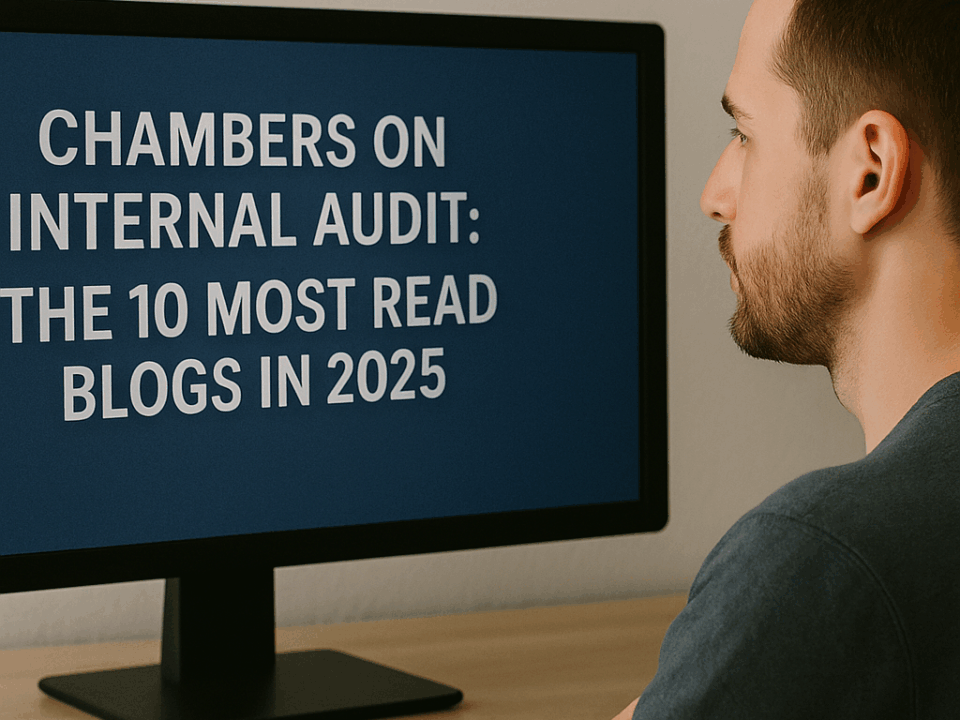What the World Economic Forum’s “Future of Jobs” Report Means for Internal Audit
January 10, 2021Are Boards Negligent When Internal Audit Heads Are Hired and Fired?
January 19, 2021A great deal has been written about the impacts of COVID-19 from every imaginable angle, from workplace culture, talent management, and evolving business models, to changing social interactions and even fashion. Much of that writing is based on little more than observation and analysis.
Today, The IIA, in collaboration with the University of Tennessee’s Neel Corporate Governance Center, releases an authoritative examination of the pandemic’s impact on corporate governance that is based on solid survey data.
The American Corporate Governance Index, appropriately titled Making Strides Amid Crisis, finds that corporate governance improved modestly last year, despite the chaotic and challenging atmosphere created by the rapid spread of the deadly virus. Indeed, the improved index score suggests that “the pandemic-fueled focus on crisis management, updated risk assessments, and stronger alignment among risk management players may have contributed to the stronger showing on overall governance.”
The improvement, from a middling C+ grade in 2019 to a slightly better B- in 2020, reflects corporate governance among companies listed on U.S.-based stock exchanges. The scores are based on data gleaned from surveys of chief audit executives (CAEs) who rated their organizations on the index’s eight Guiding Principles of Corporate Governance.
This year’s report finds modest but consistent improvements across all eight principles, but not all the news is positive. As in 2019, ACGI finds that boards earn low marks regarding challenging management assertions and verifying information received from the C-suite.
Other key observations from this year’s report provide insightful and nuanced information about the pandemic’s impacts, based on a variety of corporate governance metrics. For example:
- Company size (revenue) and industry took on a bigger role in explaining variation in ACGI scores.
- During periods of heightened risk, companies in regulated industries (financial services, and transportation and utilities) have stronger governance, regardless of company size.
- Greater separation in governance scores between smaller and larger companies was noted when companies operate in unregulated industries, where bigger is more likely to be better.
The index also provides interesting details on how management structure and reporting lines for internal audit can influence overall corporate governance in companies reporting revenue under $10 billion. I believe these findings are particularly important for internal audit.
The survey found that respondents who described their management reporting structures as fairly simple — where material issues make their way to the CEO within a matter of one or two reporting lines — are substantially more likely to have high governance grades. Simple reporting structures also had the lowest incidence of low governance grades.
While it is difficult to imagine such direct reporting in larger corporations — after all, the CEO can’t be intimately involved in every detail of the operation — the lesson here is that there is value in keeping key decision-makers informed and aware. That makes the case for internal audit to have clear reporting lines to both the CEO and the board.
Data relating to reporting lines strengthens the point even more. The report finds administrative reporting structure for CAEs also is a strong signal of the strength of overall governance. From the report:
“Based on survey responses, 43% of CAEs who report administratively to the audit committee and 42% who report administratively directly to the CEO assigned high overall governance grades to their organizations. The percentage of high overall governance grades drops to 29% among CAEs who report administratively to the CFO. Across all sizes of organizations, governance quality is strongest when the CAE reports administratively to the audit committee or CEO, and weakest when the CAE reports to the CFO.”
That data makes a strong case for the very reporting structure The IIA has been advocating for decades. The survey data “may suggest that companies with stronger governance are more willing to give CAEs greater authority and independence within the organization by reporting directly to the audit committee or CEO, thus preventing management from filtering or applying pressure to change internal audit reports before they get to the top leaders of the organization,” according to the ACGI report.
I have written for many years about my strongly held belief that functions that report to the CFO have a conscious or subconscious bias toward financial reporting, which can limit internal audit’s ability to serve the organization. In my opinion, the ACGI analysis bears this out. The report finds, “CAEs who report directly to the CEO or audit committee are more likely to be authorized to evaluate and provide recommendations on a broader scope of risks.”
In both cases, reporting lines that enable direct provision of objective and independent assurance to the CEO and board clearly benefit the organization and drive better decisions about governance.
This blog post just scratches the surface on this year’s informative ACGI report. In just its second year, the index already is providing valuable and insightful data that can and should help organizations improve their corporate governance, whether they are publicly traded or not.
As always, I look forward to your comments.






I welcome your comments via LinkedIn or Twitter (@rfchambers).